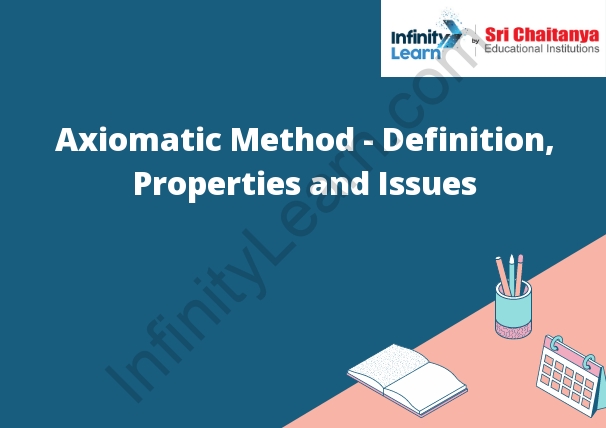Table of Contents
What is the Axiomatic Method?
The axiomatic method is a mathematical technique for proving theorems. It involves deriving a theorem from a set of axioms, or self-evident truths. The axioms are assumed to be true, and the theorem is then logically deduced from them.

Properties of Axiomatic System
An axiomatic system is a set of postulates (or axioms) from which a mathematical theory or a logical system is developed.
The defining feature of an axiomatic system is that any proposition (or statement) in the system can be deduced from the axioms using a set of logical rules.
Axiom systems are used in mathematics, logic, and computer science.
Issues of Axiomatic Methodology
Axiomatic methodology is a philosophical approach to the theory of knowledge that emphasizes the role of axioms in justifying knowledge claims. According to the axiomatic approach, the justification of a knowledge claim must be based on a set of self-evident axioms. These axioms are assumed to be true without proof and provide the foundation for the rest of the knowledge claim.
The axiomatic approach has been criticized on a number of grounds. First, it is not clear that axioms are self-evident. Many of the axioms used in mathematics, for example, are not self-evident but are based on accepted conventions. Second, the axiomatic approach does not allow for the possibility of revision or change. Once a set of axioms is established, it is assumed to be fixed and unchanging. This can lead to stagnation in knowledge development. Third, the axiomatic approach can be used to justify unjustified claims. A set of self-evident axioms can be used to justify any claim, no matter how absurd it may be.
Aristotle’s Syllogistic
Aristotle’s Syllogistic is a system of logic that is based on the idea that a conclusion can be drawn from two premises. The premises can be either true or false, but the conclusion must be true. The system is made up of three types of syllogisms: categorical, hypothetical, and disjunctive.



